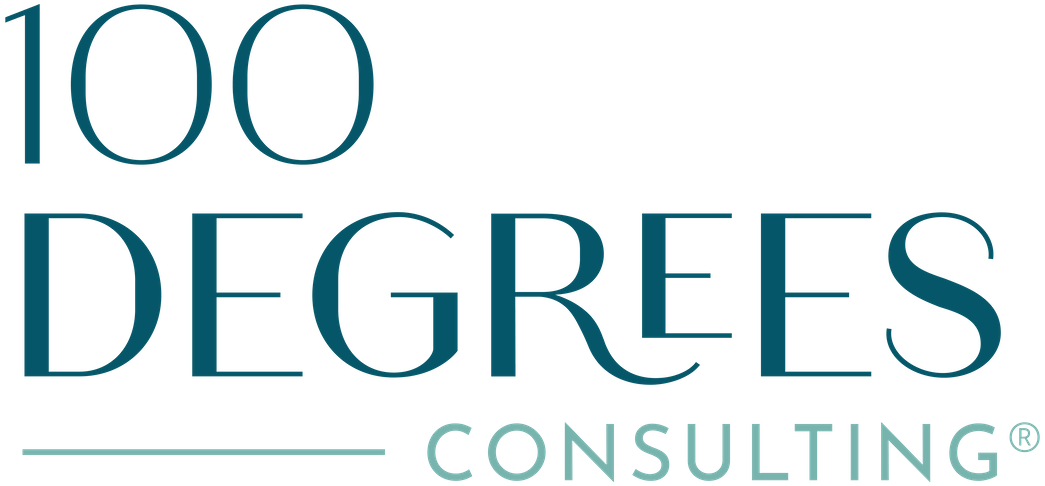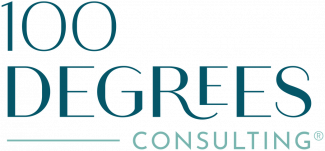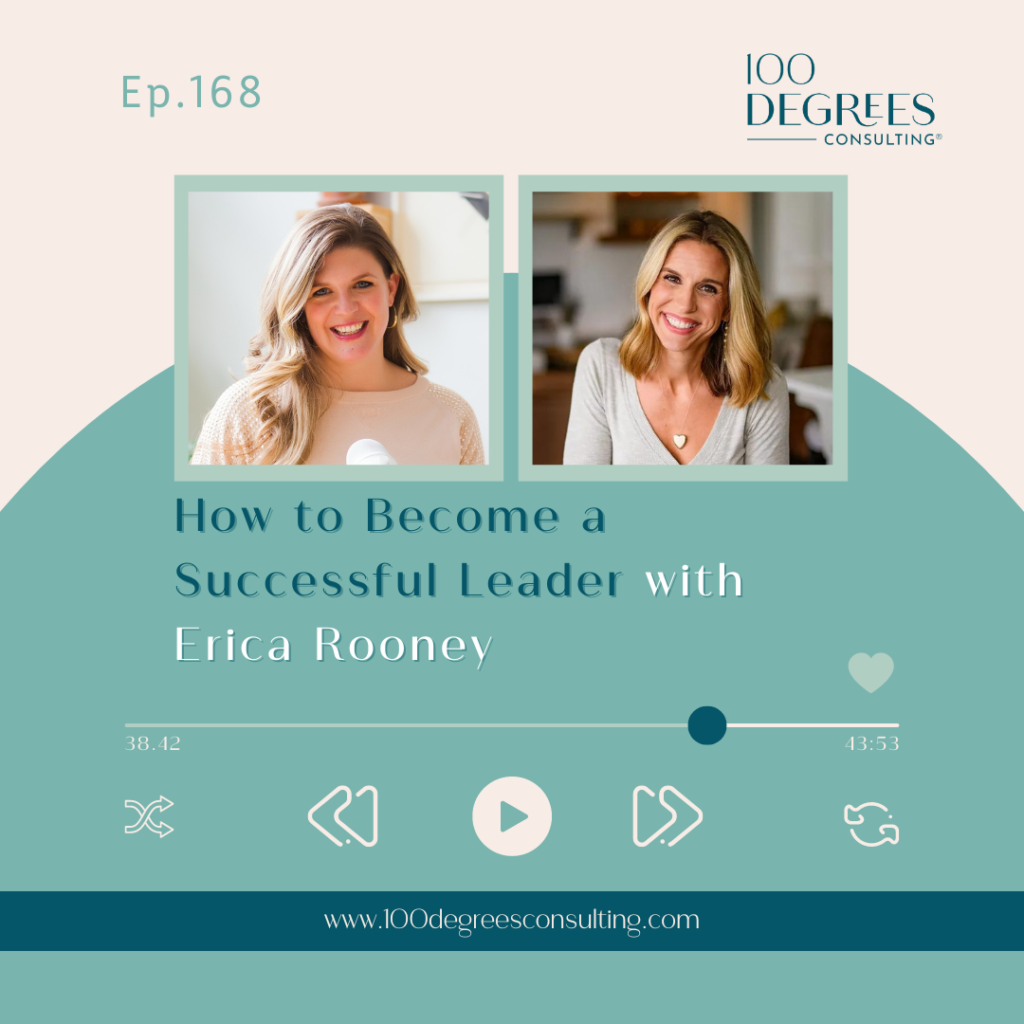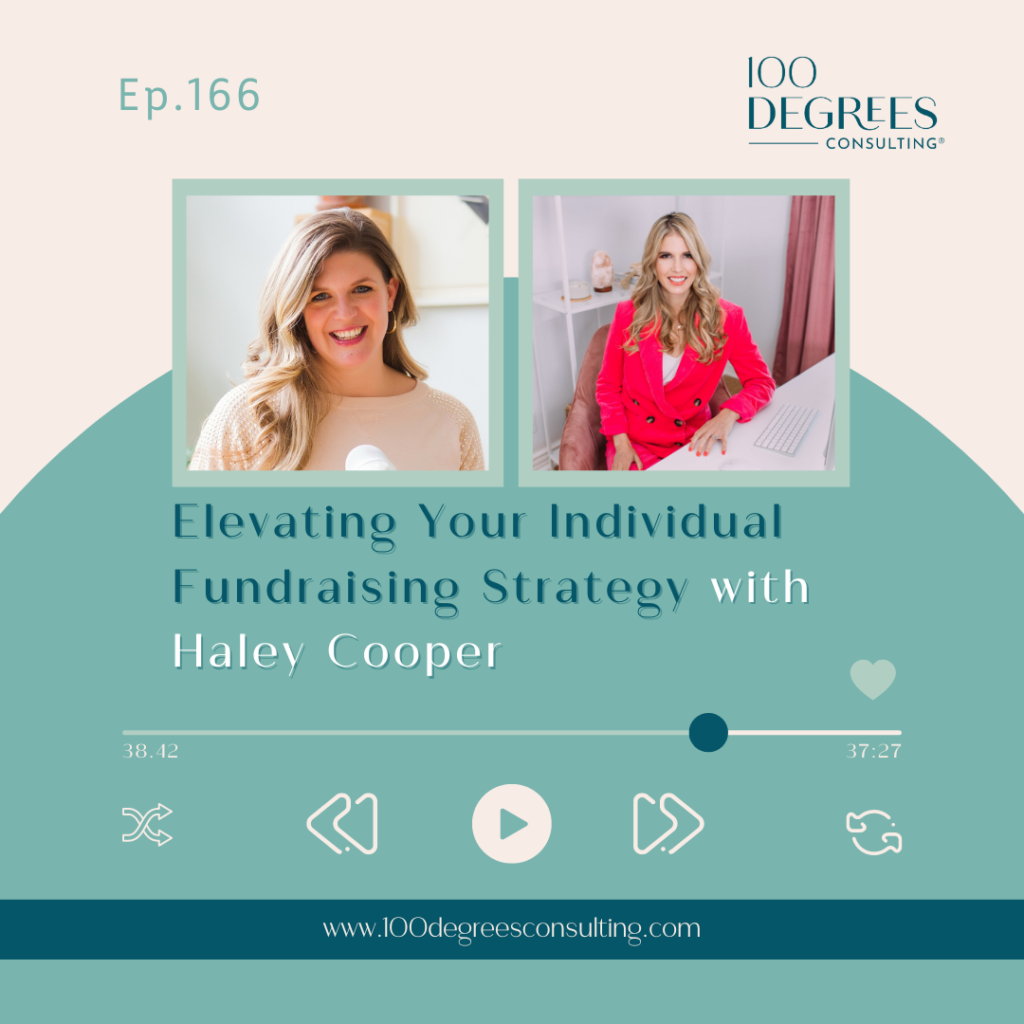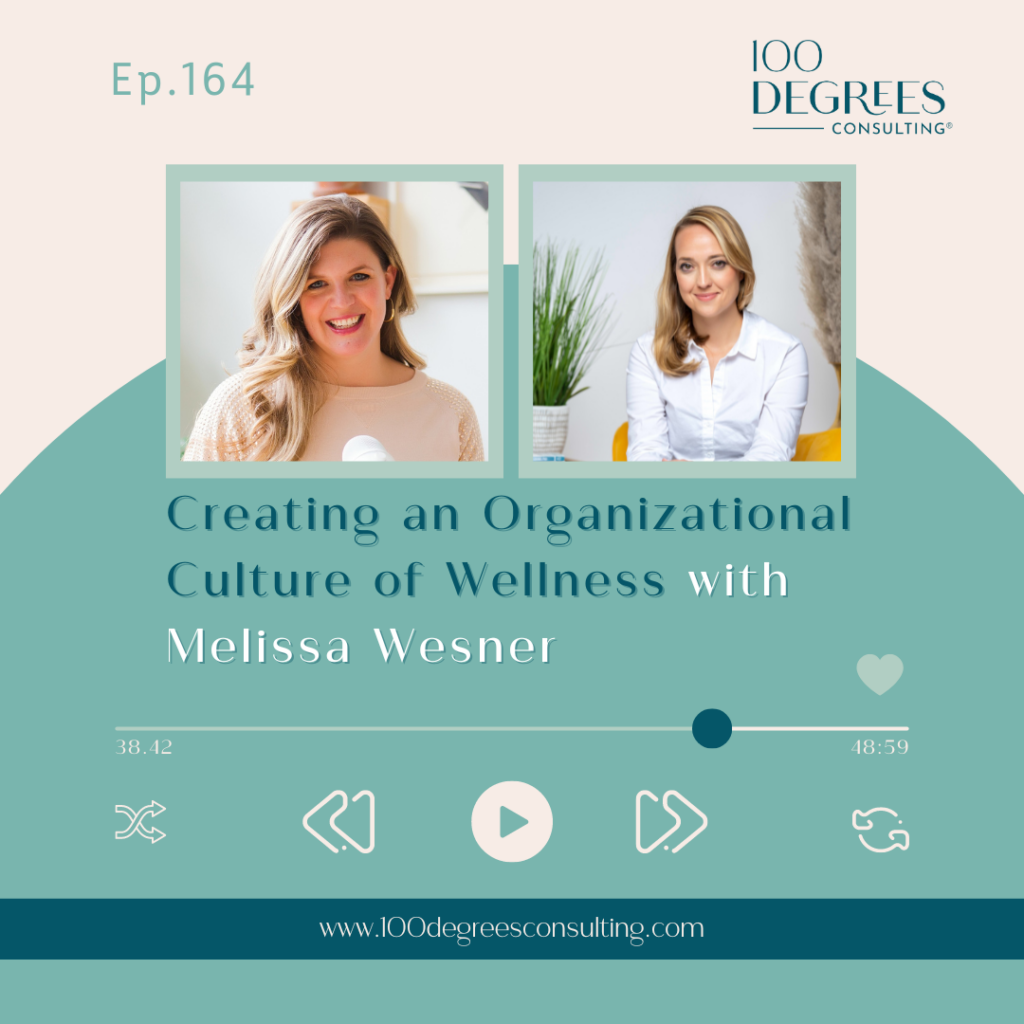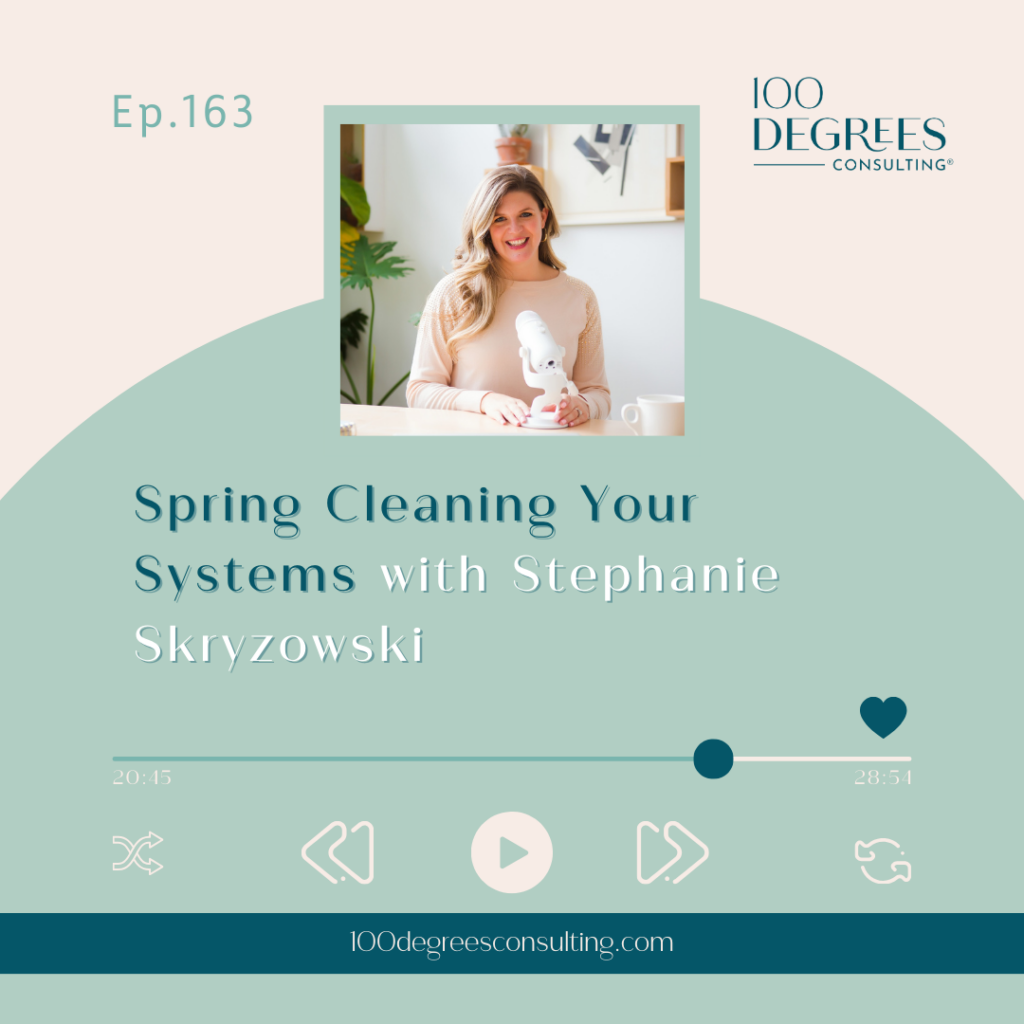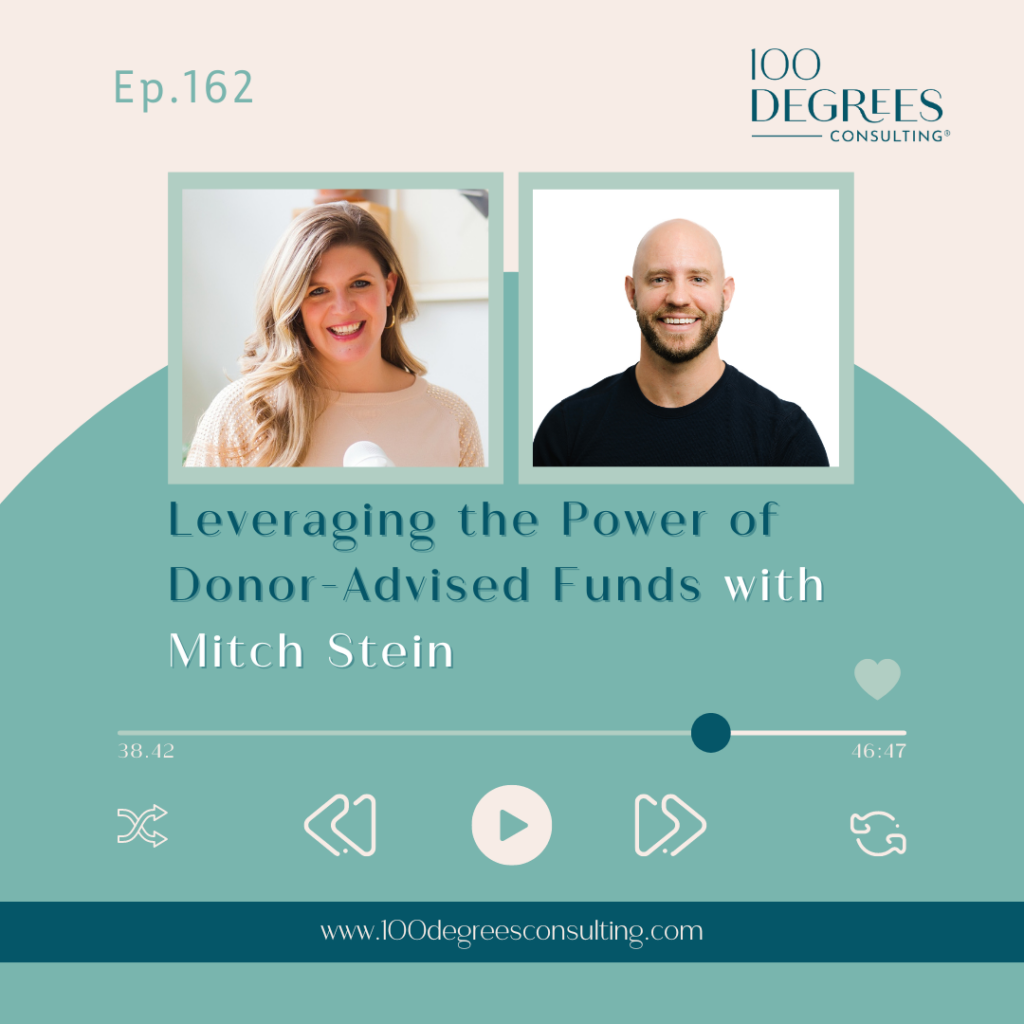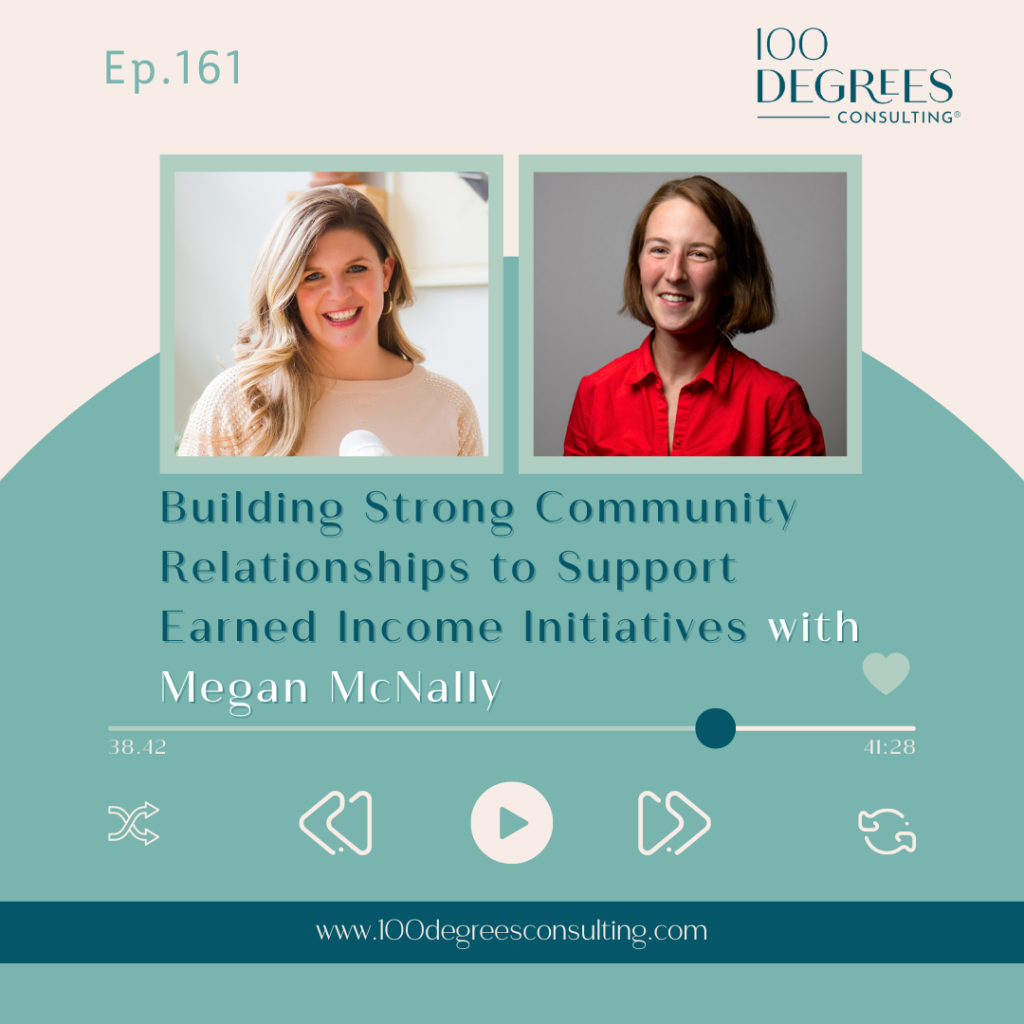Transcript Episode 16: Pivoting On Purpose to Create Your Dream Life with Amy Irvine
Transcript Episode 16
Stephanie Skryzowski:
Welcome to the 100 Degrees of Entrepreneurship Podcast, the show for purpose driven entrepreneurs who want to get inspired to step outside of your comfort zone, expand it to your purpose, and grow your business in a big way. I’m your host, Stephanie Skryzowski, a globe trotting CFO whose mission is to empower leaders to better understand their numbers to grow their impact and their income. Let’s dive in.
Hello. Hello. Welcome back to the 100 Degrees of Entrepreneurship Podcast. I am your host Stephanie Skryzowski and I am here today with my financial planner Amy Irvine. Amy is passionate about three things: family, finances, and wine. And this comes through in all that she does. Amy holds a master’s degree in financial planning and is a certified financial planner with over 26 years of financial planning and industry experience. She’s the founder and owner of Rooted Planning Group, which started in 2016 and has grown to include five other planners and three part-time staff members. Amy is definitely doing it her way and has been recognized by her financial planning colleagues as being a disruptor, a title she holds close to her heart and is proud of. Uniquely, at the age of 44 she decided to not only start her own company, but to act on what she defined as her perfect life. And she splits her time between western New York, around where I live, and Florida. In 2018 she decided it was time to take the stigma out of finances by combining her passion for finances and wine. She started a podcast called Wine and Dime which highlights a different wine and financial topic each week. And she released her book combining those same two passions titled Uncork Your Finances.
So Amy has been pivotal in my personal life in helping my husband and I basically take our dream and turn it into a plan. So today on our conversation with Amy we talk all about what it means to pivot in your business and she asks us the really challenging question, if money wasn’t a barrier, what would you change? And she asked my husband and I this question when we started working together and it was really interesting what came out. So stay tuned for that piece of our conversation. I think that’ll be really interesting and I would love to hear if money wasn’t a barrier for you, what would you change? So give a listen to this episode, I think it’s a great one and I hope you enjoy.
Welcome. Welcome everyone back to the 100 Degrees of Entrepreneurship Podcast. I am Stephanie and I am here with Amy Irvine today. Amy. Welcome.
Amy Irvine:
Well thank you. It’s great to be here.
Stephanie Skryzowski:
Yeah. So I always like to start out the episode with how we know each other because I’ve interviewed a lot of my business friends and colleagues for this first round of all of my guests episodes. And so Amy is my financial planner. So we started working together, I don’t know, late 2020 I think. And you and your team have really been so transformative in helping my husband and I both minimize our risk and all those sort of boring adult type things that we need to do, but also finally create a plan to achieving some of our financial goals and other goals that we had set for ourselves, but never really had a structure in place to figure out how exactly we were going to get there, like buying a property at the beach. That has been a long-term dream of ours and now it’s not just a dream anymore, it is a plan thanks to you and your team.
Amy Irvine:
That’s so wonderful. I love that it’s a plan, it’s not a dream.
Stephanie Skryzowski:
Exactly. Exactly. Because now we have a roadmap, we know how we’re going to get there, and we will own that house at the beach.
Amy Irvine:
You’ll love it this time of year, right?
Stephanie Skryzowski:
Exactly. Yes. We were just talking before we started recording about how you are in Florida right now instead of in upstate New York, which is where I am. So very jealous of your sunshine. I would love to hear a little bit about your business journey specifically. You had said in your bio, you said uniquely at the age of 44 you decided to start your own company. So tell us about your path and how you landed where you are now.
Amy Irvine:
Well when they talk the long and winding road, that is definitely my path. I had somebody say to me not too long ago, what’s the secret to your overnight success? And my response was 26 years. So the interesting thing about my career is I can look back on life now and say probably at a very early age I knew I had some entrepreneurial spirit in me. My mom picks on me a little bit and always says that I was the kid on the playground that would organize shows. And I was. We would do dramas, we would do plays, we were singing, we were dancing. And I was the director. And we would do fundraisers, all sort of crazy things that you know, who does that at 10, 11, 12 years old? So I can look back on it now and say probably it was always there it just took me a little while to realize that I had the ability and that I had the wisdom to actually do that. And then it took a big ol’ whopping whole bunch of courage to ultimately do it.
And I’ve been in this profession since 1994. I worked a very short period of time out of college. I had a background in it. I had an accounting degree and I worked a very, very short period of time for a transit company. It was pretty clear to me that that wasn’t my path. And I was really fortunate that I got to work for a very small trust company to really get to understand finance at a whole different level. And that was what launched my career in many different ways, led to so many other different types of jobs from being an actuary to being 401k administrator and doing open enrollment meetings. And for an introvert, to stand in front of a room of a hundred people and talk. Talk about taking me outside of my comfort zone.
All of those things ultimately led up to, 2002 timeframe, right after September 11th there was a lot of soul searching I think by a lot of people of what they really wanted in life. For those of us, the trust company that I worked for at that point in time actually worked with traders that were in one of the World Trade Center buildings. So we lost people that we knew. And I can’t even imagine what it was like for people that lost hundreds of people that they knew. But it really created some soul searching on my part as what do I want to do the rest of my life? And I loved the education piece. As much as I just said for an introvert, getting up in front of a room… But education has always been something that I’ve been interested in. So I thought, well I should be an educator.
And I went back to college and walked out with a different degree than I started to go back to college for. I ended up getting a bachelor’s degree in financial planning because I realized very quickly that I loved the teaching, but I also loved the finance part of it. So I walked out with a financial planning specific degree, took my CFP exam, which back then was two days, basically a day and a half, 10 hours. It was only given in certain destinations throughout the country. Buffalo happened to be one of those destinations, so I was fortunate that it was only a couple hours away, and really took a deep dive into, okay, yeah, this is what I want to do.
And I was searching for a company that would allow me to combine the education piece and the planning piece. How do we make sure that people can get educated about their finances in addition to us planning for them? So I went to work for a credit union at that point in time, did some time there. Ended up taking on a role that I didn’t particularly care for. And unfortunately I didn’t speak up about it. I didn’t share my true meaning and my true feelings and I just sort of took it and I took it and I took it until I exploded. A lesson that was learned from me was speak up. If there’s something going on, it’s okay to share that you don’t like something or that that’s not your passion. I really hopped from a frying pan to another frying pan. You know when they say don’t hop from one to another? When I say I blew up, I just, I couldn’t do it anymore. So I walked away and I went to another firm that was a large firm that had a large minimum to work with me. So you had to have $2 million and it was a great learning experience, but it didn’t have the education component that I kept striving for.
So I approached that firm in late 2014 and said, I would really, really, truly love to work for a company or love to create this other sort of arm of this company that allows me to work with my generation, my people that are dealing with competing goals and competing challenges and limited dollars. And this problem solving isn’t a small problem solving, it’s multiple problem solving. They’re sending their kids off to college, they want to buy a lake house, they want to buy… They are running their own companies. They’re in the accumulation stage, right? They’re saving, they need some direction, but there’s all these other things. Maybe it’s they want to buy a house, maybe all these things, right? So I want to work with those kinds of people and I think they’re willing to pay a flat fee for that. We went back and forth a little bit and ultimately the decision of that business owner was no, that’s not within my niche. And respectfully, I get it. We talk about niches all the time, what’s your business niche, and that idea didn’t fit.
But at the same time in 2014, very similar to 2001, there was in my life sort of crisises that were going on. So again, sort of made me take a look at, am I loving what I do? Do I love to go to work every day? Do I love the services that I’m offering? And 2014 was making me question that even more because I lost a very near and dear uncle early in February, 2014 and then late in 2014, my husband and I lost an uncle that he was very close to. He was kind of like a second father to him. So again, crisis sort of drove that, hey, life is short, am I really doing what I love? Am I getting out of bed and I’m excited about it? And the answer to that was no. So in very early 2015 that courage, that gumption, that period of time in my life where I really just had it sort of a come to Jesus meeting with myself where I said, if I don’t do this now, I never will. That’s what happened. And it was the most nerve-wracking, exciting, adventurous thing I think I’d ever done in my life.
And for the first year I kept questioning, what did I do? What did I do? What did I do? Second year was a little better. Not as bad, but I still have those thoughts. Now, 2021, we’re in that and we’re into a whole different like, oh, thank God I did that. Thank God I did that. Thank goodness we’re moving in that direction. We’re offering education and planning. If people want to continue working with us throughout their life, great, but if they choose to do a very short project with us, then they walk away from that project with really good resources and knowledge. A lot of times it’s not the mistakes that people make knowingly, it’s the mistakes they make unknowingly that are frustrating and challenging to correct. So if we give them the knowledge enough to take pause sometimes and say Amy or [Pete 00:11:58] or [Carrie 00:11:58] or anybody on the team said something about that and they pause and they think, okay, maybe we should get a little advice about this. I don’t quite remember what they said, but they said something. That’s our goal. And fortunately, I finally get to do that. Took a few years, but I finally get to do it.
Stephanie Skryzowski:
Yeah. I love that. And I especially love that you sort of made that switch in making this kind of information accessible to quote unquote normal people. Because I often think that, we think about financial planning or wealth management or any of the terms that come along with the type of work that you do and the ways that you help people and it’s like, well, that’s just for rich people. And no matter how much money you have, I a, always like, well, that’s just for somebody who has more money than I do. And so to make that accessible and making that shift in what you were doing to be able to do that, I think is so huge. And it’s something that sets you apart for sure because there are, there’s normal people that have normal amount of money that want to plan for it and make that money grow.
Amy Irvine:
And that’s where I think the most critical, more critical are advices, right? Because there’s less room for error. An average amount of money and average number of different goals that exist, if you have $4 or $5 million and you make a $5,000 or $6,000 quote unquote mistake, then it stinks, but if you don’t have that kind of money and you make a $5,000 or $6,000 long-term mistake, it has a huge impact on your life. That’s why it’s so important to us.
Stephanie Skryzowski:
Yeah, exactly. Exactly. I love that. So when you were sort of making that pivot in what you were doing, was that scary for you or did it feel like, all right, this is the right thing to do, this feels very natural, I know that I’m called to do this, I’m not scared at all?
Amy Irvine:
I don’t know if scary can be more scary. I mean I had always been very diligent about saving. I was maxing out my retirement accounts, saving in my emergency fund, saving for the rainy day that I didn’t know what I wanted yet, things like that. And so I had always been somebody who had sort of excess and saved it. So I went from having excess, and I knew this going into it, of course I sat down and I mapped out a plan. Like what if we don’t get any clients for the first year? What am I going to look like? Could we live off of our savings? Could we do this and could we do that? So in reality I had done the work to know what I had for living expenses and then also for the business, but it’s still very scary. And this is something that a lot of retirees go through. When they retire you’re going from I’ve got money coming in every single week or two weeks or whatever to, ooh, I’ve got shift to this other bucket over here. So for me it gave me a little taste of my own medicine in a way because I went from having excess to drawing down savings that we intentionally put aside for a pool, but it was still very scary.
I’m just like most people, I have imposter syndrome. I was terrified that the business wasn’t going to succeed and a dear friend of mine, [Pat Smith 00:15:18], that’s her name. She was a kindergarten teacher for years and years and years. We were sitting out on her [inaudible 00:15:24] in Florida and she looked at me and I was just explaining how scared I was. I was just about to pull the trigger. And she said, “well, what’s the worst that could happen?” I said, “I’d have to go get a job.” And she said, “that’s the worst?”
Stephanie Skryzowski:
Right. You’ve done that before.
Amy Irvine:
And I said, “well, yeah.” And she said, “well then I don’t think it’s that bad.” I said, “well we have spend all our savings. We do this and we do that.” And she said, “but Amy, you know that and you need to draw a line in the sand to say, when you get to this point, if you’re not doing what you said you were going to do, then you go look for a job. But if you’re that employable, then what’s the big deal?” Now all these years later, going on six years at this point in time, I don’t think I’m employable anymore.
Stephanie Skryzowski:
I am with you. I am with you.
Amy Irvine:
I’ve got a good point now where it’s, I don’t mean that. I think if I really truly had to I could, but I’ve gotten so used to doing the business the way I want to do the business that it would be so challenging to go to somebody else’s method.
Stephanie Skryzowski:
I totally agree. And also, I always say this, I don’t want to have to ask someone permission to go to a doctor’s appointment. Nope. Not doing that anymore. No.
Amy Irvine:
What takes mine… I mean you have young kids.
Stephanie Skryzowski:
Yeah. That’s right.
Amy Irvine:
[Crosstalk 00:16:51] and really get the chance to see the things that they’re involved in and to truly be involved in their lives. And if you have a parent that’s ill you can go do those… I think a big piece of it is permission, but it’s also knowing that you get to control the calendar a little bit.
Stephanie Skryzowski:
Exactly. Exactly. Yeah. That’s one of my absolute favorite things about owning a business, I don’t have to ask anybody permission to do anything. I do what I want. So you mentioned in your bio that you feel like you’ve really been able to create your perfect life splitting time between Florida and New York. And I think for a lot of people that in particular is their perfect life. Maybe they’ve got some other version of their perfect life. So as you’re working with your clients, what sort of financial or life tips do you have for people who want to build their perfect life too?
Amy Irvine:
You probably recall one of the questions I like to ask all clients is if money wasn’t a barrier, what would you change? And the ultimate goal is to get people there. For Brent I and one of the other reasons why it was that decision ultimately to start our own business, my own business, was because I didn’t want to wait till I retired to go where it was warm in the winter. That was the answer to my question. And so whatever the answer is to somebody’s question, if they want to work remotely in two locations like I do, then that may mean a job change like what I went through, but let’s map that out. I’m a huge believer that we should never have those well when I retire moments. Life happens between I’m a young adult and I retired. A lot of life happens. So let’s figure out how to make that happen.
And for me, retirement is, I love what I do, I get to get up every morning and go to work and I’m thrilled that I get to do that. So for me it wasn’t about X day, it was about lifestyle. And I wanted to be able to have a certain lifestyle. Now I hope I get to work until I’m in my seventies to be honest. If I still love it as much as I love it right now, I truly hope that my mind and soul and body continues to keep up in some way and I can do that. So the thought of waiting till I retire to be where it’s warm in the winter is beyond my comprehension. But if somebody in their life has that thing, let’s start figuring out a way to transition your life right now and make some decisions about your life, prioritizing things right now so that you can achieve that thing. And if it’s multi-locations throughout the course of the year, what’s the barrier that exists or that you think exists and let’s talk about how to move the barrier or relocate the barrier as I say. I love it when people say, Oh, I lost weight. I’m like, don’t lose it, that means you have to find it.
It’s the same concept of don’t lose the dream in that respect. Don’t just tear down the wall, just move it out of the way. And there’s all those adages like a door closes, a window opens or something like. There’s all those phases. And those are things that we really try to talk to people about. And usually, usually when we really dig into the answer to that question and start asking, well why is it a barrier? And we really very gently ask continued questions down that road. It generally isn’t a barrier other than a psychological one.
Stephanie Skryzowski:
Yeah. I was just going to say, it sounds like a lot of that is really mindset and you are there to kind of help provide options or help open your client’s eyes to options or potential solutions.
You hear me talk all the time about how important it is to know your numbers as a business owner, but you may be thinking, well how in the world do I do that? Where do I even begin? So I have a free resource for you. The Profit Playbook is an amazing template that you spend about 15 minutes getting it all set up and you can literally see into the future of your business. Revenue, expenses, cashflow, just like a crystal ball. It is a huge resource that will absolutely help you create a roadmap to reach your goals in your business. It is for free over at 100degreesconsulting.com/profit.
Do you ever get pushback from clients? If they’re saying, okay, this is what we want to do, you’re sort of drilling down, drilling down, okay, well here are the ways that you can get there. Do you ever get clients that are like, nope, that just won’t work for me, that’s impossible, that’s not going to work?
Amy Irvine:
Yes, that does happen. And usually when we get into those situations I’ll take pause and say, okay, is one thing more of a priority than another thing? Let’s take a step back in the situation that we’re talking about and let’s really talk about what you said if money wasn’t a barrier and let’s make sure that that’s truly how you feel. So let’s take pause and figure out why are you resistant against something like that? Because sometimes there’s an emotional attachment to what they’re resistant to.
We’ve done a class before called the psychology of money and everybody has a money story or money psychology. And when people are real resistant to something, there’s usually something there. And sometimes we very gently suggest that they might want to seek some therapy or something along those lines because the connections are tighter than what we have the ability to, or knowledge or resources or capability to actually work through with people. But usually it comes down to why are you feeling so resistant? You told me X, we’re trying to get you that, but you’re real resistant to this idea. What’s going on that’s causing you resistance? And if you love it that much, if you’re resistant to something that we’re recommending, you’d love it that much, hey, that’s your thing. We never want to take anybody away. And I think Stephanie, I told you right away, we don’t judge your book. Your spending plan is your spending plan and we’re never going to judge it. But there’s so many dollars that go around, we want you to prioritize what actually makes you feel excited about how you spend your money. And if we can make people think about that, what gets them excited about how they spend their money, then usually that will bring them back around.
Stephanie Skryzowski:
Yeah. I love that. And I think that money is just so entangled with so many pieces of our own internal stories and our mindset and our childhood. There’s a lot there. And so I love that you’re like, okay, well maybe if this is something that you’re resisting, maybe there are other ways that you can work on that and we’re not going to be able to solve all of your problems as financial planners. And I was also thinking about just sort of jumping on what you had said about how you don’t judge how your clients spend their money. And I love that because I think we all are like, oh, we shouldn’t be eating out so much, ooh, did I really spend this much money on this store? And we sort of judge ourselves. And so I think knowing that the person who is looking at our money and helping us achieve our goals is not really judging us for that at all, you don’t care, but making sure that your clients know that they’re spending their money on what brings them joy and what works for them.
I just read a couple of months ago, I read, I Will Teach You to Be Rich, that book by Ramit Sethi. And he has a very similar principle where he’s like, I forgot what he said his non-negotiables are, but it was all around convenience. And he’s like, I’m going to spend a bunch of money on takeout and that makes me happy and I want to do it and it’s part of my plan. And so no, I’m not going to try and skimp and grocery shop and make all my own meals because I don’t want to. And I’m like, yes. Oh my gosh I love that so much. And that’s what we do for businesses as well. I’m not going to judge how you spend your money in your business or what you do with it. If you feel like you don’t have any cash in the bank at the end of the year, well then we’re definitely going to be looking at expenses, but how you spend that money, it doesn’t really matter. So we love that.
Amy Irvine:
Create more revenue. I mean so it’s both. Sometimes it’s the way they’re pricing their relationships or their products or whatever it might be and maybe it needs to be a combination thereof. It’s somebody with an outside eye can sometimes say, you might want to look at it this way or you might want to look at it that way. And just having somebody that’s not emotionally involved in it or didn’t develop it to just gently nudge somebody in a direction that as you know, Stephanie, when we’re working with small business, you’re working with small businesses, they’re in the business, they’re in it. They’re heads down, they’re plowing forward, they’re doing what they know how to do, but they often don’t step back and look at the business. And that is one of the things that I think we don’t necessarily do that other than asking questions about it. That’s more your thing. But asking those questions and getting pointed in the direction of looking at the business is so so important. And just like you said, we don’t judge how you’re doing anything, we’re just gently asking some questions so you start thinking about it.
Stephanie Skryzowski:
Yeah. I love that. I think it just makes things so much less scary for people who numbers are not their thing. Plus most of our clients, numbers are not their thing and that’s why they’re hiring us. And I’m sure it’s same as you, it’s normal people that you’re working with that are kind of scared by the numbers and that’s why they’re bringing somebody else in. So I love that you’re like, okay, we’re just going to help you think about things a different way. But yeah, no judgment. I love it.
Amy Irvine:
And a piece of it is probably with you as well. Maybe the numbers are a little, like why is it that they are not working with the numbers or pushing the numbers off? It’s something that they don’t enjoy or something that they don’t have the time to. So by having somebody else that’s looking at it, it takes something that they don’t love and it delegates it out. And that I think is almost just as important as the I don’t even know what I’m looking at kind of thing. Because again, looking at working in and looking at the business are two different things. And if your business continues to grow successfully, time gets away from you. Time as a commodity, it’s important and it’s limited. And you have to get to the point where you’re like, where is my best skill today? As you know, when you start a business you wear about 15 different hats and each of those hats grows as the business grows. And at some point in time you got to start shedding them.
Stephanie Skryzowski:
Exactly. Or they’re just going to crush you into the ground. Yes, definitely, definitely been there. I was just having another conversation with somebody around this thing that I’m going to ask you and I’m curious to know if you have any parts of your business where it’s like, what is the saying? The cobbler’s children have no shoes. So I was just talking to somebody, they’re like, yeah, I do this for clients all the time and I realized I wasn’t doing it in my own business. And the example that I gave for me was we are such sticklers about bank reconciliations and making sure that every client’s bank recs are done by like the 10th or the 15th of the month. We are on top of it. And I remember the CPA that I was working with before you and your team, I had given them my books at the end of the year to prepare taxes and they’re like, you haven’t reconciled your bank account since April. And I’m like, oh my God, this is so embarrassing. So I have definitely made sure I’m on top of it since then. Do you have anything like that in your business where it’s like, of course you are like 110% on it for your clients, but you’re like, ooh, I might neglect this in my own business?
Amy Irvine:
Yeah. I think probably the number one thing is, it’s more the business side than my personal side, but I just got done saying the too many hats. And when we’re always recommending to clients this is something you need to outsource, this is not your area of genius so you need outsource. And as much as I say that to people, I really have a hard time with it. I think when, this isn’t my opinion as to why I have that emotional challenge, because I say all the time I don’t have time for this. And so I need to start a journal or something for every time I say that about a particular task and if I say it more than three times, figure out who or what I’m going to delegate it to.
This is my baby. Your company is your baby. And letting go of certain things has been very challenging for me. Somebody can probably do it a lot better than I’m doing it, it’s just really hard. So it really has to do with I think me taking a spoonful of my own medicine and figuring out a way that I can get beyond that emotional barrier of delegating certain things and just let it go because like I said, probably somebody is going to do it 10 times better than me, it’s going to give me more time, which is going to give me more time to grow personally or with clients or focus on those kinds of things. They’re just not work. It would be nice. So that’s my cobbler’s kids shoes.
Stephanie Skryzowski:
Yes. Oh I love that. I feel like each of us in our own way, that’s just so funny. Tell everybody else to delegate and then you’re like, ooh, that’s a little harder in my own business. Yeah. So true. Awesome. Well to wrap us up I love to ask each of our guests a couple quick questions at the end. Tell us first, what is your favorite productivity hack or tool in your business or in your life?
Amy Irvine:
Yeah. When I started using filters in my email. Best productivity hack I’ve ever used because it sorts it by, clients stay front and center and all the other stuff has its own folders.
Stephanie Skryzowski:
Ooh, love it. So does it automatically go into whichever folder you…
Amy Irvine:
Right.
Stephanie Skryzowski:
Oh, I like that.
Amy Irvine:
If a new one shows up, I just have to tell it where, set a rule that says in the future, if it comes from this email address, then it goes into that folder.
Stephanie Skryzowski:
So then when you go into your inbox, do you just methodically go through folders in that way?
Amy Irvine:
Yeah. So I always start with the ones that’s the inbox, which is the clients. And then I have any kind of client, there’s a system that’s called AdvicePay, I look at that next. And then I look at what we use for scheduling and security, which is another wonderful hack, for scheduling hack. Acuity would be there next, just make sure there’s nothing in there to look for reschedules, that sort of stuff. We use TD as our primary custodian, but any other custodian we use too, Vanguard, Fidelity, they all go into a custodian folder and I look there for any alerts. And then I’ll go down through, there’s a compliance and there’s a newsletter one and there’s a webinars one. All that sort of stuff sort of get last. And sometimes that webinar one, it gets up there in number and I’m like all right, I just have to go down the row.
Stephanie Skryzowski:
Delete it? Yeah. That’s a good idea. I might need to think about this. As I’m looking at my inbox it’s like, okay, here’s an email from a client and here’s a promotional email from whoever. And here’s a LinkedIn notification and here’s a something from my team. And it’s like your brain is all over the place. So I love that.
Amy Irvine:
Yeah, that’s a panic thing for me because if I see that I have 100 emails, I’m panicking thinking if there’s something important in here that a client needs me to see-
Stephanie Skryzowski:
Yeah, it’s lost. It’s gone.
Amy Irvine:
how am I going to see that in 100 emails? So for me it’s a control thing and a stress relief thing because I can quickly look at something and say, okay. If I see it’s something that’s like maybe I need to respond to it later today I might snooze it because it might require some action or something like that and look it up. I might snooze it to like two o’clock in the afternoon when I’ve got time set aside for emails.
Stephanie Skryzowski:
Love it. Oh, that’s so good. Okay. My second question, what’s a favorite book you’ve read?
Amy Irvine:
I’m debating between StoryBrand and Clockwise.
Stephanie Skryzowski:
Both good ones. I have both of them.
Amy Irvine:
Yeah. They’re different, right? So those are productivity books I think more than… Well Clockwise is productivity. StoryBrand, the team is actually rereading that right now to make sure that we have a good, solid story that we all understand. But the two are probably my favorite business books. Non-business books are anything that are mystery, that usually are like historical mysteries, anything based on stuff that happened in the past. Or Eleanor Roosevelt is, I’m a huge fan of hers. I love to read anything that includes her or has her or autobiographies, all of those kinds of things. Just women of history are interesting to me.
Stephanie Skryzowski:
Oh, I love that. I know. I read too many business books. I need to like read some more books for fun. My last question is, imagine that you had a weekday completely free from work. What do you do?
Amy Irvine:
Oh, beach. I’m a beach girl.
Stephanie Skryzowski:
Yes. Me too.
Amy Irvine:
Go to the beach. I’m going to grab probably a bottle of wine, my husband, a good book, go to the beach. That’s my most favorite thing in the whole world is, water for me is very relaxing. If I’m feeling highly anxious then that is the one thing that will in a minute calm me down.
Stephanie Skryzowski:
Love it. I would say the same, except the difference for us is that you will live in Florida so you can do that whereas I can just dream about it right now. But that’s one of my big goals that you and your team are helping us work towards. So love it. Well Amy, thank you so much for chatting with me today. This was super fun to kind of learn your journey and some of the lessons that you’ve learned along the way and pivots that you’ve made. And we’ve never really had this conversation before so I’m so glad we got to chat. Thanks for being here.
Amy Irvine:
Thank you for having me Stephanie. I really loved it. It was fun.
Stephanie Skryzowski:
Thanks for listening to the 100 Degrees of Entrepreneurship Podcast. To access our show notes and bonus content visit 100degreesconsulting.com/podcast. Make sure to snap a screenshot on your phone of this episode and tag me on Instagram at Stephanie.skry and I’ll be sure to share. Thanks for being here friends and I’ll see you next time.
Transcript Episode 16
